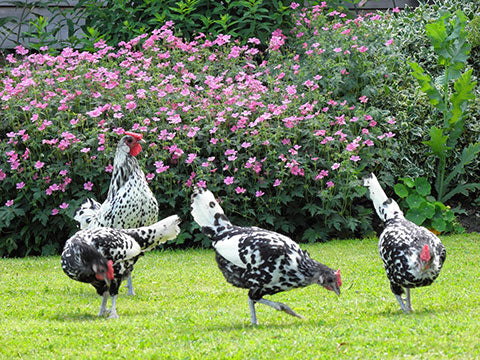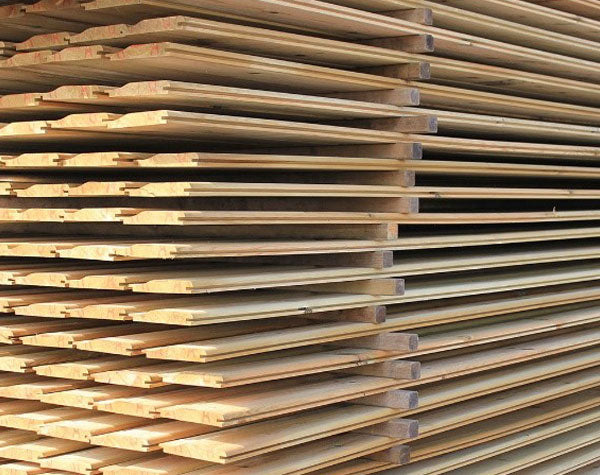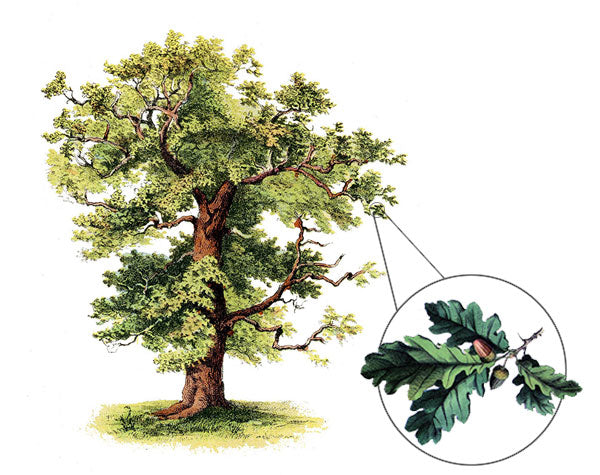What should I avoid Feeding to my Chickens and Why
The Top 5 Plants and Foods that you should not feed to chickens:
Rhubarb & leaves: Causes liver damage and is deadly.
Chocolate: Causes vomiting and diarrhea, potentially deadly.
Uncooked Beans: Causes blood clots therefore deadly.
Raw potato (and nightshade family): Contains solanine which can cause heart failure.
Mouldy food: Don't feed them mouldy food, it causes digestive issues (or botulism) and may contain harmful bacteria.
For our printable pdf, list go to Foods & Plants you shouldn't Feed to Chickens or click on the image above.
Let me tell you more ...
I will readily admit that when a packet of biscuits shows up in the office, or a member of the FSF team celebrates a birthday and we all gather for cake, I perhaps eat more than my fair share.
When it comes to doughnuts my appetite has been, somewhat harshly I feel, described as 'gluttonous' and my ability to tuck away three pieces of birthday cake as 'impressively piggy'. But it's not my fault, who doesn't turn down the opportunity to eat their own weight in treats when the chance arises, and our beloved chickens are no different.
Similar to my eating enough doughnuts to keep Crispy Kreme in business for another year is bad for my health, there are many treats and plants that you should avoid giving to your chickens.
For example, Raw Peanuts. While they are beloved snack for your garden birds, that will see them through the coldest of temperatures, they shouldn't be given to chickens certainly not in any quantity.
I have seen them for sale in and around 'chicken world' as a treat for poultry, but they are in fact toxic to chickens when eaten in any large quantity and can lead to major health problems for your bird.
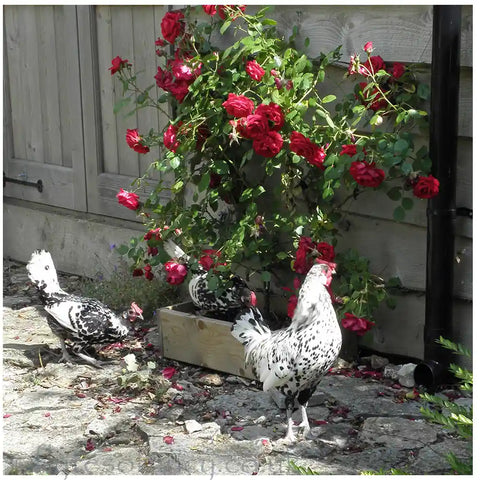
Giving your hens the odd scraps of fresh vegetables here and there is fine, but if those vegetables are rotting it can lead to all sorts of issues, particularly botulism (which can be identified by a floppy neck or paralysis).
We advise using an animal-specific disinfectant, like Virkon S, for cleaning their utentils and henhouse to avoid any potential toxic contamination.
If you want to give your hens a healthy treat, try well boiled potato peelings or carrots, a leaf or two of cabbage or other greens every so often but never too many, and not every day.
Other treats to avoid are too many sunflower seeds and too much sweet corn. While your poultry will be eager for more, they are bad for them and will lead to runny yellow droppings.
You should restrict these treats and make sure that they are eating a staple diet of Layers Pellets, supplemented by a daily handful of Mixed Corn.
There are of course plenty of chicken treats available that are beneficial for poultry. The many types of Chicken Treats and Pecking Blocks available can help keep chickens entertained and have nutritional advantages.
Here at FSF HQ, we spoil our hens as much as the next poultry passionate person, but moderation is key.
In general, it is best to stick to a high-quality commercial chicken feed and supplement with fresh fruits and vegetables as treats.
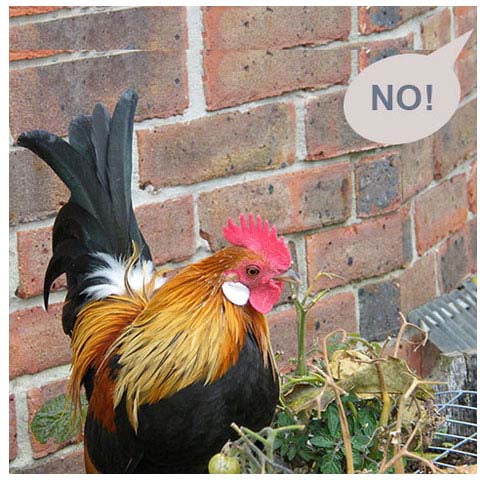
If your hens are lucky enough to have run of the garden, there are plants that you may want to avoid as they can be toxic to chickens - Laburnum, the pea family, potato and tomato foliage, privet, yew, rapeseed, foxgloves should be avoided.
We all love spoiling our girls, but like myself and the choice between a plate of doughnuts or the healthy option of fruit cake, making sure that your chickens get a healthy and balanced diet is paramount.
If your girls are looking a little worse for wear our Chicken Checkup Info Page is always worth a look to aid in a diagnosis. Or visit our blog for our 12 Dos and Don'ts of Chicken Keeping.
- - -
What should I avoid Feeding to Chickens ©Flyte so Fancy 2015. Updated 2022. Author: James Bezant. Reproduction of part or all of this text is only possible with the express permission of Flyte so Fancy Ltd.

